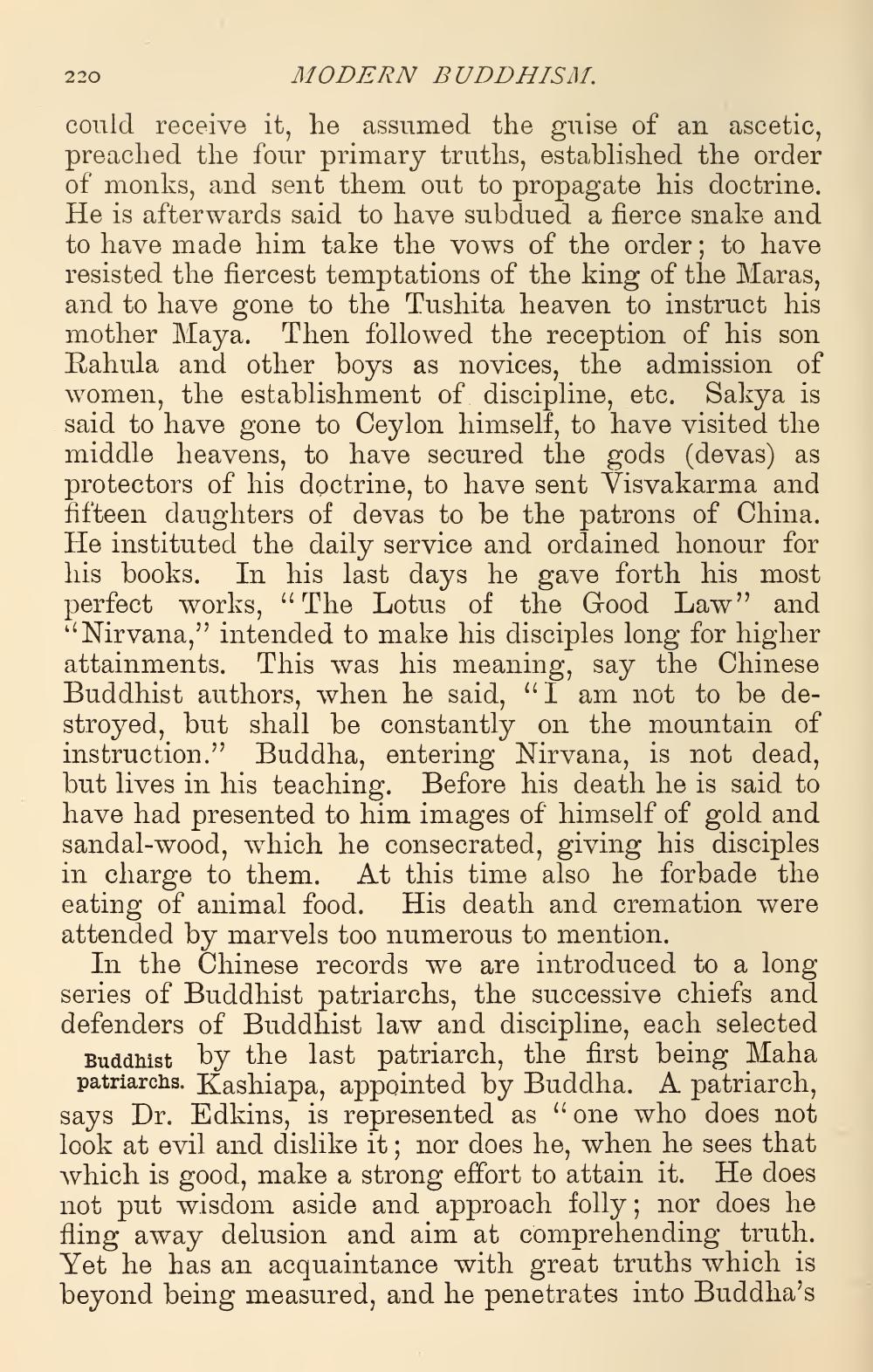________________
220
MODERN BUDDHISM. could receive it, he assumed the guise of an ascetic, preached the four primary truths, established the order of monks, and sent them out to propagate his doctrine. He is afterwards said to have subdued a fierce snake and to have made him take the vows of the order; to have resisted the fiercest temptations of the king of the Maras, and to have gone to the Tushita heaven to instruct his mother Maya. Then followed the reception of his son Rahula and other boys as novices, the admission of women, the establishment of discipline, etc. Sakya is said to have gone to Ceylon himself, to have visited the middle heavens, to have secured the gods (devas) as protectors of his doctrine, to have sent Visvakarma and fifteen daughters of devas to be the patrons of China. He instituted the daily service and ordained honour for his books. In his last days he gave forth his most perfect works, “The Lotus of the Good Law” and “Nirvana," intended to make his disciples long for higher attainments. This was his meaning, say the Chinese Buddhist authors, when he said, “I am not to be destroyed, but shall be constantly on the mountain of instruction.” Buddha, entering Nirvana, is not dead, but lives in his teaching. Before his death he is said to have had presented to him images of himself of gold and sandal-wood, which he consecrated, giving his disciples in charge to them. At this time also he forbade the eating of animal food. His death and cremation were attended by marvels too numerous to mention.
In the Chinese records we are introduced to a long series of Buddhist patriarchs, the successive chiefs and defenders of Buddhist law and discipline, each selected
Buddhist by the last patriarch, the first being Maha patriarchs. Kashiapa, appointed by Buddha. A patriarch, says Dr. Edkins, is represented as “one who does not look at evil and dislike it; nor does he, when he sees that which is good, make a strong effort to attain it. He does not put wisdom aside and approach folly; nor does he fling away delusion and aim at comprehending truth. Yet he has an acquaintance with great truths which is beyond being measured, and he penetrates into Buddha's




